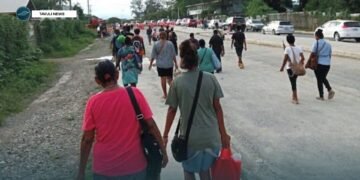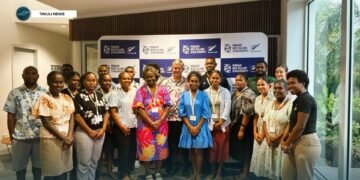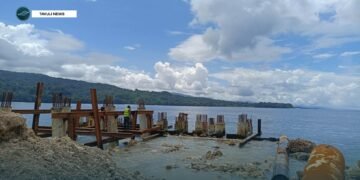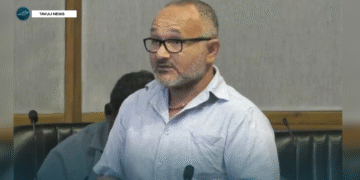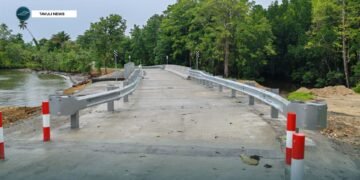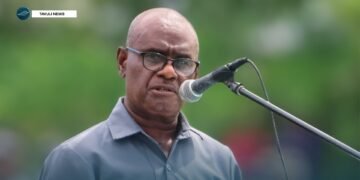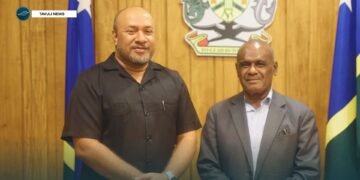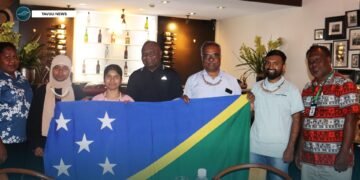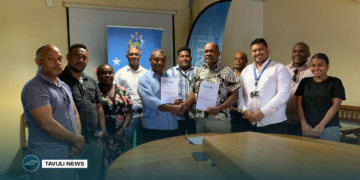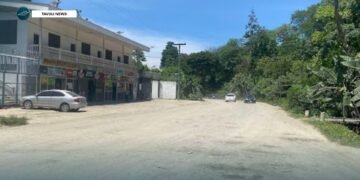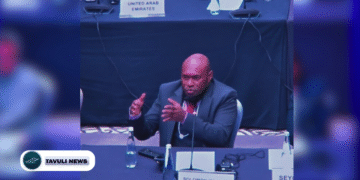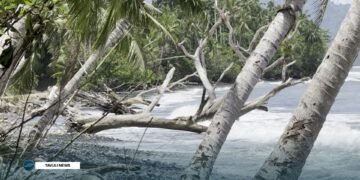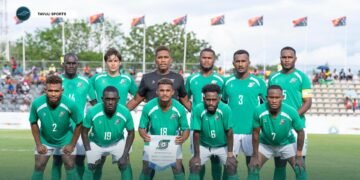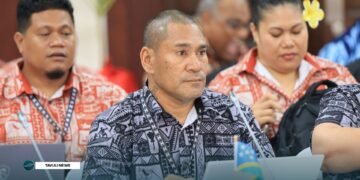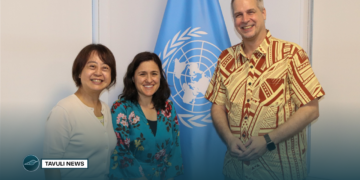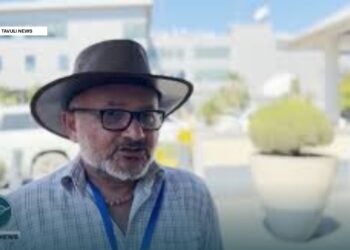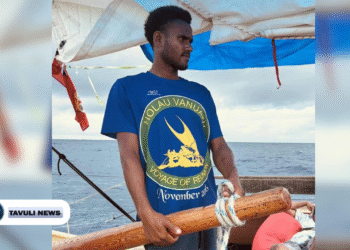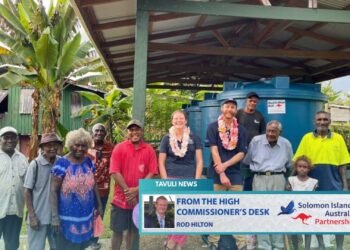Pacific leaders call for unity, peace, and regional resilience at Ocean of Peace panel during security conference.
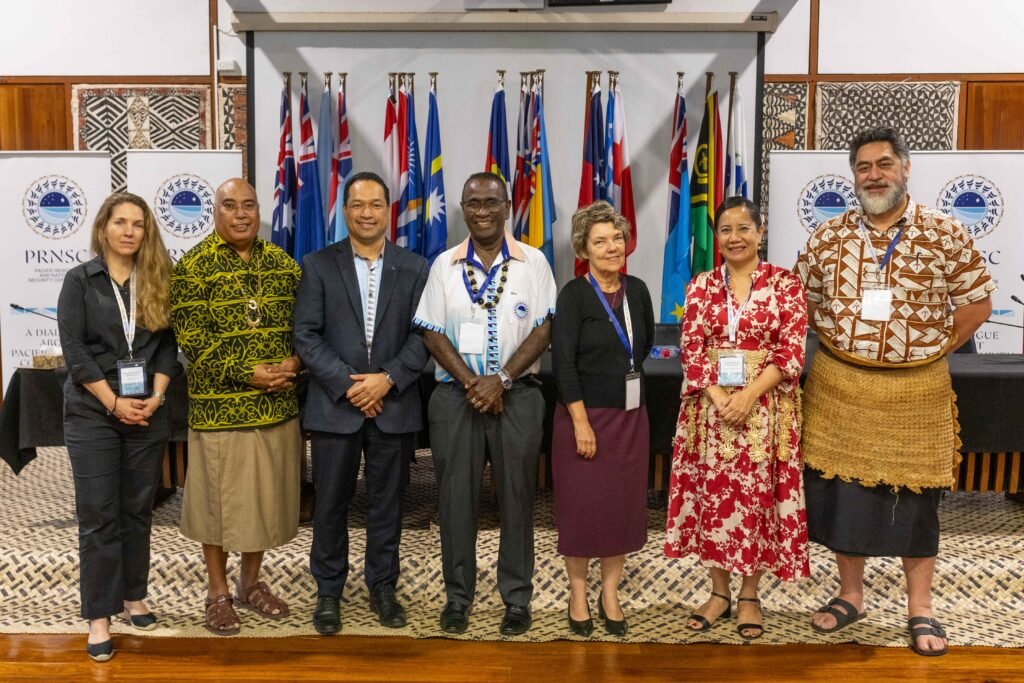
At the Pacific Regional and National Security Conference, the Ocean of Peace panel focused on forging a secure, cohesive, and resilient Blue Pacific region. Leaders from diplomacy, academia, and governance discussed collective responses to challenges such as climate change, nuclear contamination, militarization, and declining regional unity.
Ambassador Junior Aini of the Marshall Islands shared firsthand accounts of his nation’s narrow land area and the ongoing threats of climate change and nuclear legacy—highlighting health impacts like thyroid cancers and displacement. He urged full implementation of the Treaty of Rarotonga and support for a nuclear-free Pacific.
“Im not sure how many of you have been to Marshall Islands. You can literally stand at the middle and see from the lagoon side and ocean side, the islands are so narrow. The 3D model that the Pacific Community developed for the RMI shows how the inundations affect the water lengths in our respective islands are very concerning, because water gives life to our crops and our community,” he said.
He said the nation’s nuclear legacy affected human security, particularly in regards to health and displacement.
“My grandmother has probably six siblings, all of them except for one, they had thyroid cancers. We also have domestic displacement within our islands. On all of the islands that were used and affected by the nuclear testing, people were displaced.”
Ambassador Aini urged a recommitment to the region’s shared stance on nuclear issues through the full implementation of the Treaty of Rarotonga, and a renewed push for a nuclear-free Pacific.
“We cannot have an Ocean of Peace unless we address the nuclear legacy.”
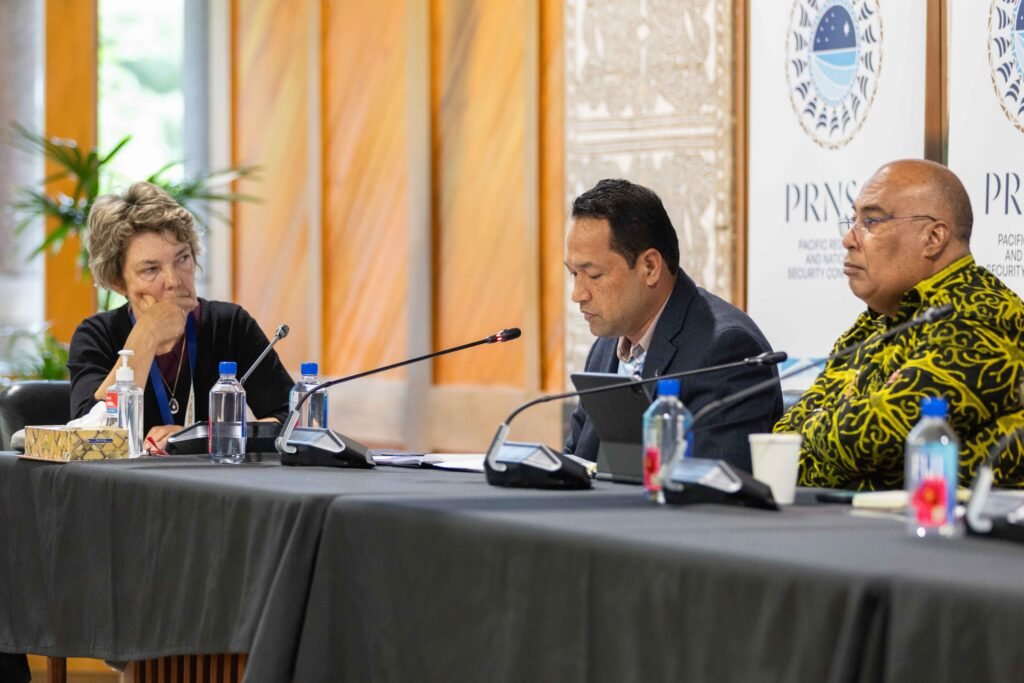
Collin Beck, Permanent Secretary for Foreign Affairs, described the transition from a unipolar to a multipolar world and stressed the importance of neutrality in regional policy. He noted fractures in Pacific solidarity, citing divergent positions on issues like Fukushima water discharge and UN voting.
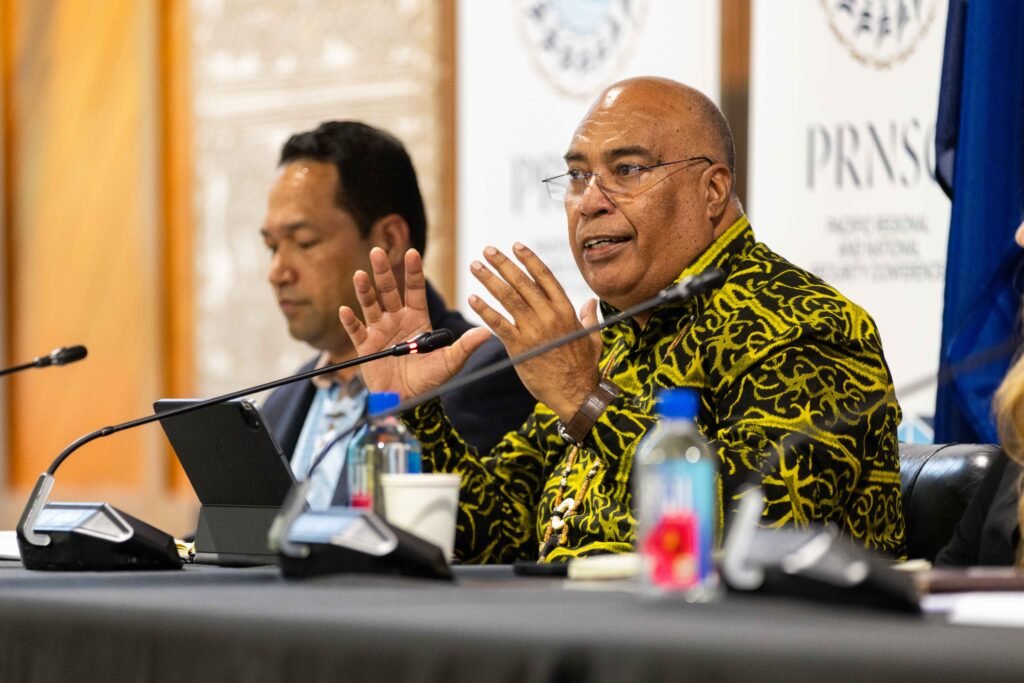
“The new reality is basically we now have a fast changing international system that is moving from a mono-polar world into a multi-polar world. We just need to adapt,” he said.
“We should not try to have a pessimistic view of this changing international system.
“When we look at the Ocean of Peace … the whole purpose is basically for the Pacific region to navigate this changing environment, to navigate it with sense of certainty, with a sense of real reliability, and with a sense of sense of direction.
“If there is anything that needs to go into the Ocean of Peace, we would like to see principle of neutrality cemented in it. We should not have any militarization that targets any third Country.”
Mr. Beck spoke about the cracks in Pacific solidarity – from diverging national positions on the Fukushima water discharge to fragmented voting blocs in the United Nations.
“One of the biggest challenges is building Pacific solidarity. We are not together on many of the issues we should be together,” he said.
Associate Professor Anna Powles of Massey University cautioned that internal divisions—driven by strategic competition and national interests—may undermine regional cohesion and stability. She emphasized that new regional frameworks must not weaken existing cooperation.
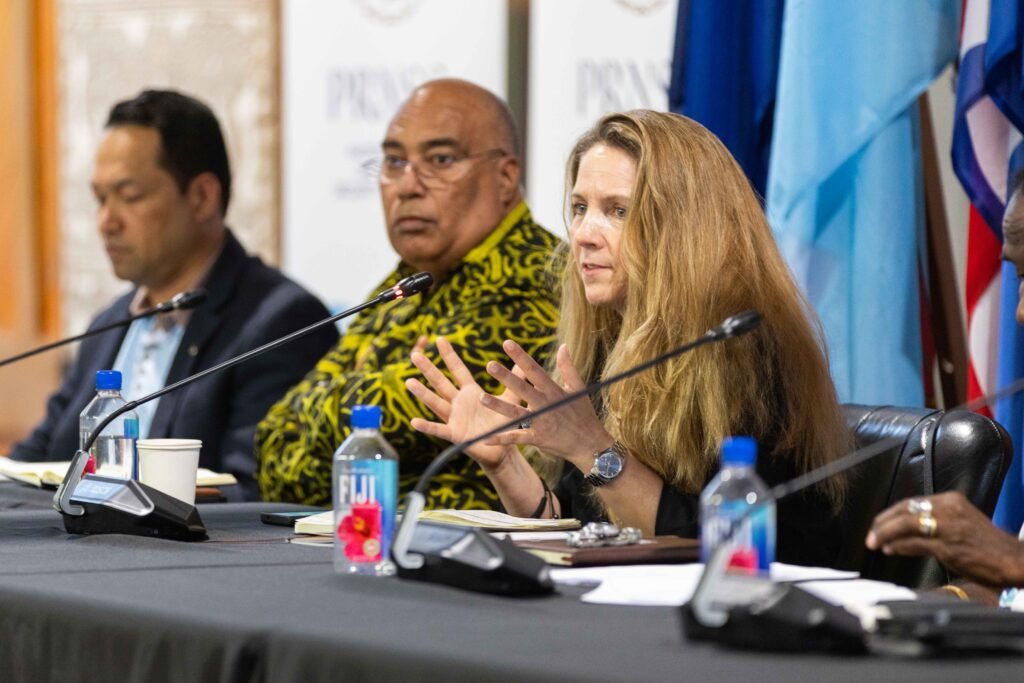
“One of the greatest challenges to the region that we're facing is increased fracturing within the regional system, within the regional order, and that's partly as a consequence of the way in which strategic competition has become quite a disruptive force within the region,” she said.
“It also is a consequence of growing national interests, growing sub-regional interests, and this push-and-pull friction that we're experiencing across the region, and that has significant implications for how regional bodies and how leaders begin to seek to respond to these issues.”
Associate Professor Powles highlighted the number of declarations, agreements and extensive regional architecture that has been developed across the region.
“We need to be really careful as we talk about an Ocean of Peace as a new form of potential architecture or arrangement … that through these efforts to bolster and safeguard regionalism we’re not inadvertently undermining the very thing that we’re trying to protect.”
Beyond institutional frameworks and strategic alignments, panelists agreed peace must be grounded in people – in their rights, dignity, culture, and aspirations.
Professor Transform Aqorau, Vice-Chancellor of Solomon Islands National University, urged a people-centric approach: peace must protect food security, prevent displacement, and safeguard cultural identity. He warned against Pacific nations becoming pawns in external geopolitical games, calling for ethical leadership and sovereign self-determination.
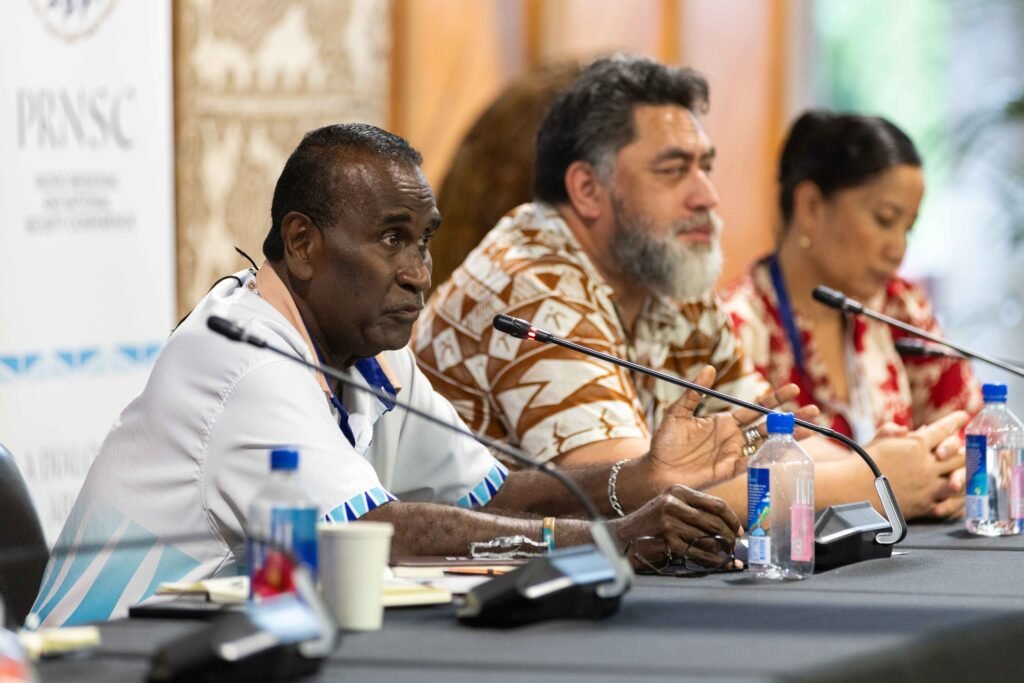
“The peace we seek must start with people. That peace must serve the people, not geopolitics, not the elites in the region, not distant interests. When our people live with lives that are uncertain about food, the displacement from climate change, or even the erosion of their cultural identity, peace is already compromised,” he said.
“Peace begins with putting the interest and dignity of our people first.” Professor Aqorau acknowledged the impact of geopolitical tensions and the importance of strong governance and leadership.
“We must be clear that for us in the Pacific, we should not be a chessboard in someone else’s grand game. We are sovereign people. We are proud peoples, and therefore not prizes to be claimed by others. Our peace should not depend on choosing sides, but on asserting our needs, on our terms and on our collective aspirations,” he said.
“Don’t forget also that we really require bold and ethical leadership in the region. Peace is not going to come from slogans or sentiments, but it will come from the moral courage of our leaders and the responsibility of our executives.”
While the region is rich in vision and frameworks, its capacity to translate these into action remains uneven, several panelists noted. The implementation gap, long acknowledged but still unresolved, was a central theme of the session.
Sione Tekiteki from Auckland University of Technology stressed the need to move beyond rhetoric and identity narratives toward concrete implementation, especially in aligning existing treaties and mechanisms into a cohesive Pacific framework.
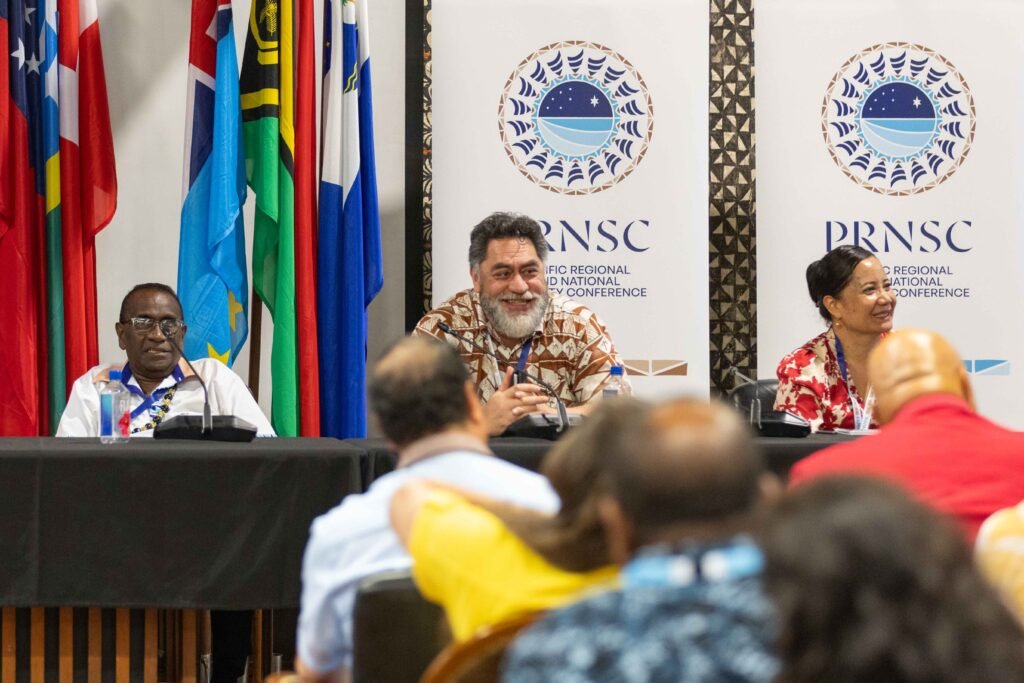
“When we’re talking about the Ocean of Peace, are we talking yet again about principles? Or are we willing to move beyond that and start making some concrete compromises that can actually move the region forward? Because one of my biggest observations is we do narrative very well. We do identity very well, but we don’t do implementation. We don’t do enforcement very well,” Mr Tekiteki said.
He encouraged leaders to draw strength from the region’s existing instruments including the Rarotonga Treaty, the Boe Declaration and the 2050 Strategy and consolidate them into a cohesive Pacific rulebook.
“Maybe it’s time we start thinking about how we articulate ourselves, particularly because there’ s a lot of interest in the region, so there’s a lot of leverage there, but we need to package everything rather than just talking about things in isolation,” he said.
The speakers noted that bridging this gap will require stronger emphasis on human development, cultural integrity, and inclusive education. True peace, the panel emphasized, cannot exist without social justice, safe communities and empowered citizens.
Dr Manumatavai Tupou‑Roosen of the University of the South Pacific highlighted the human cost of insecurity—including violence against women, school dropouts, human trafficking, and rising HIV—and called for investment in social justice, education, and cultural knowledge.
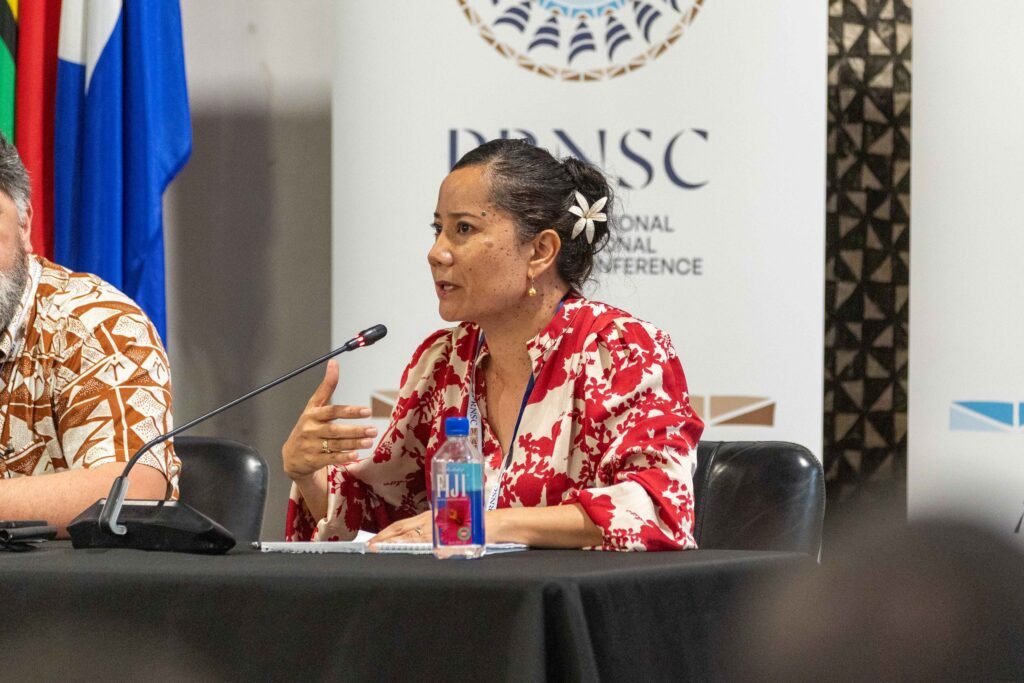
“Two-thirds of our women suffer violence. Forty to sixty per cent of our children drop out of school. It’s quite confronting the human trafficking, the rise in HIV cases, including in our country here,” she said.
“And so when we think about peace, and this work towards a 2050 that’s an Ocean of Peace, it has to embrace the human elements and these human costs and human challenges, and it has to invest in our people.”
Dr Tupou-Roosen championed partnerships that nurture both formal and non-formal education, strengthen cultural knowledge systems, and foster leadership grounded in identity and service.
“Peace is something we never take for granted. It’s something that we must actively and constantly work at.”
The panel’s discussions will inform a futures exercise on the conference’s final day, contributing to a regional declaration on the Ocean of Peace to be presented to Pacific Islands Forum Leaders in September.
SOURCE: PACIFIC SECURITY COLLEGE PRESS RELEASE

